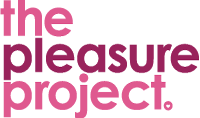One of the first times hearing from our fellows!? We can’t wait let you in on their experience of the WAS Congress.
As the excitement around such an amazing WAS Congress begins to simmer, we want to remind you of the magic of everything that happened once again. But this time it will be through the amazing, pleasure pioneering voices of two of our 2021 Pleasure Fellows.
Below Laura Ramos Tomás and Jaime Ignacio Romaní Adorni, will take you through their experience of attending the first WAS Congress held in Africa, sharing their most pleasurable moments, insightful talks and general thoughts about what went down over the four days. We can’t wait to get an insight into what it was like attending the Congress as one of our first fellows and pioneering pleasure activists.

Laura is a sexuality educator and instructional designer who works within SRHR. She is a founding sexuality educator of TabuTabu, a NGO working to empower grassroots organisations in Latin America with contextually relevant, co-created sexuality education programs that tackle their communities most pressing SRHR concerns.
This year’s WAS Congress was the first held on the African continent; it was also the first WAS congress that I had the privilege of attending. The virtual delivery was impressively smooth for an international event of its scale, the content of the presentations, roundtable discussions, and recordings was immensely rich and inspiring, and the eagerness amongst participants and presenters alike to share and learn was extremely contagious.
Whether as sexual health professionals, researchers, educators, activists or otherwise, we were all there in the spirit of advancing sexual health and rights in our communities. This work is not easy work. The dynamics of taboo around sexuality that the human race has constructed and often continues to uphold, frequently turns sex-positive conversations and initiatives into a controversial and polarizing endeavor. It was so refreshing to participate in an event that hosts such diversity, and that, in that diversity, we held safe spaces to expand our horizons and collectively refuel, so as to take our learnings beyond the conference and continue making an impact in our communities.
As I look back on the fraction of the content I have absorbed thus far (thank you WAS and SASHA for making the recordings available for the coming months!), I notice I have found strange comfort in knowing that many of the challenges that we face at TabuTabu are shared experiences in this global community of practitioners. In the symposium on Internet Platforms and Sexual Rights: Censorship and Content Moderation Based on Gender, LGBTQ+, and Reproductive Lenses, Charlotte Petty from RNW Media talked about the frustration of having to censor one’s own content: “Due to the censorship we are facing on [social media platforms], we are not able to share the pluralistic pleasure-positive content that we want to with our audience.” Working with Latin American communities that receive no CSE, social media could be a great platform to scale delivery, if it weren’t for those policies. But we can take comfort in knowing that we are not alone in facing these challenges and in innovating to overcome the existing barriers.
I participated at the conference not only in representation of TabuTabu and our work in co-created sexuality education with and for communities living in poverty in Latin America, but also as one of The Pleasure Projects’ twelve Pleasure Fellows. Wearing both of these “hats” at the conference, I was delighted to see that Pleasure is weaving its way into more and more conversations and presentations relating to sexual health and rights – including scientific and medical topics. Pleasure is essential to sexual wellbeing, and sexual well being is a right all humans — regardless of identity, geography, or social class — share. It was very exciting to witness WAS formally ratify the Pleasure Declaration and The Pleasure Project launch the 7 Pleasure Principles. These are important milestones not only in advocating for pleasure in SRHR practices (and life in general!), but also in facilitating the practical implementation of pleasure-based approaches into this work.
Following the closure of the conference, I am filled with positivity and hope for the roads that lie ahead in ensuring sexual and reproductive health and rights are enforced for, with, and by all people across the world. One of my personal highlights at the conference was the symposium on Sexuality Education and the Power of Social Media Influencing, hosted by Ekua Yankah (PhD MPH). In it, founder of Inua Dada and 2021 WAS Education Award winner Janet Mbugua, said: “As soon as you create a safe space, you are almost giving [people] agency to be advocates in their own spaces. That is the greatest joy – it’s not owning the conversation, but almost allowing people to scale it in a way that makes sense for them.” Here’s to all WAS 2021 participants taking valuable learnings from the conference, and scaling them in our own communities in the way that makes most sense, and does most good in our world.

Jaime is a Chilean sociologist. Currently, he works at Fundacion Chile Positivio a non-profit organisation working on HIV prevention and education throughout Chile (@Chilepositivio). He also chairs another non-profit called Sochisex or Sociedad Chilena de Sexualidades (@sochisex) an organisation working on promoting and educating on sexual rights.
A pleasurable journey in the 25th Congress of the World Association for Sexual Health
Sexual pleasure was the hot topic at this year’s WAS Congress. Not only because the Declaration of Sexual Pleasure was ratified (yahoo!), emphasizing its importance as a key aspect of sexual health and sexual rights for all, but because there were numerous sessions centred around the importance of pleasure.
I was particularly interested in the session on, “Sexual Pleasure Checklist: a tool to gauge pleasure positivity for practitioners” by Lindsay van Clief, and I was really drawn into something that one of the speakers – GAB’s Doortje Braeken – said about the work on sexual pleasure: “it (sexual pleasure) became still a theoretical discussion and we really wanted it to become more practical. Because when you become more practical you can convince many more people how sexual pleasure is”. Her words really resonated with me because, ultimately, what many of us want to do is create effective policies that will help people have more pleasurable experiences.
The sexual pleasure checklist aims to address a series of questions and discussions with your colleagues in order to assess and evaluate if your services or programs have a pleasure approach to them or if pleasure is properly addressed. Thus, the checklist allows you to see your own program’s strengths and weaknesses and ways to improve. I think that a tool as the checklist can be incredibly helpful for program evaluations and to evaluate sexual and reproductive health care. These tools and resources, like the checklist and The Pleasure Project’s own pleasure principles, are much needed, especially in countries where health care services on sexual and reproductive health are still centred on fear, risks and illness. I would only hope that these tools will be translated to other languages in order for other countries to access them, like those in Latin America.
Another session that really caught my attention was, “A Rapid Review of the Evidence on Sexual Pleasure in First Sexual Experience(s)” by Vicky Boydell. I think there is still a huge gap in the evidence and research related to the topic of sexual pleasure, so any new bits of information are always something I want to keep my eye on. Likewise, just as much as we want to create practical work on pleasure, we need to provide policy and decision-makers with evidence, often in order to justify such work. Their rapid review addressed many determinants of pleasurable first sexual experiences, such as gender, age, the circumstances in which the experience took place, if there was a prior parental communication on sex and if that first sexual experience was consensual. These factors are incredibly important for practitioners and educators to address in order to empower young people and people who are facing their first sexual experiences, in order for them to make healthier and pleasurable choices with their sexuality.
All in all, it was very comforting and reassuring to see many talented SHRH professionals and activists work on the topic of sexual pleasure and to see how much of the work being presented complement each other.
We had such an amazing time at the WAS Congress and we are so glad that our fellows did to – and you all got to share it.
✨The congress has shown that the pleasure wave is surging – keep your eyes on our page and socials for how we can all continue to surf it together! ✨

